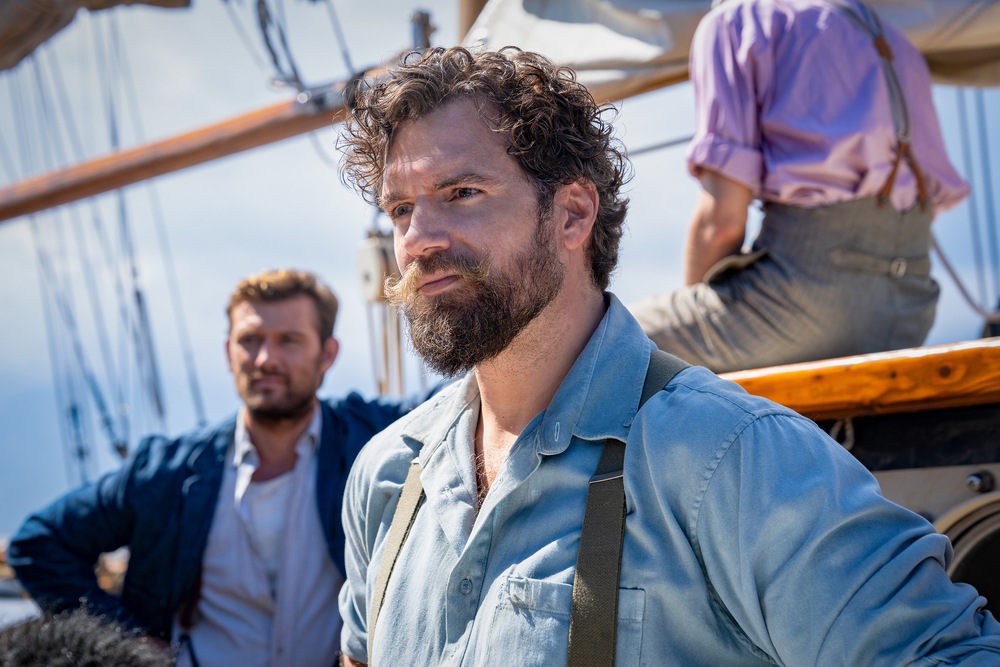The Ministry of Ungentlemanly Warfare

Alex Pettyfer and Henry Cavill star in THE MINISTRY OF UNGENTLEMANLY WARFARE. (Photo: Lionsgate)
You can take its claims to be based on actual events for what they’re worth, but The Ministry of Ungentlemanly Warfare at least makes you wish it were all true.
Prolific filmmaker Guy Ritchie (Sherlock Holmes) seems well within his wheelhouse with this Kingsman-style romp through a fictionalized historical lens, an ambitious yet uneven globetrotting saga replete with colorful characters and scenic period backdrops.
The film succeeds as a World War II action comedy with some amusing quirks and clever twists — not to mention a cheeky satirical takedown of some real-life bureaucrats — but stumbles when it tries to raise the stakes by injecting deeper sociopolitical intrigue.
The story apparently is taken from recently declassified files of the British War Department during the tenure of former British prime minister Winston Churchill, recounting the formation of a top-secret special forces unit that carried out some dirty work behind the scenes during the conflict.
Specifically, Churchill (Rory Kinnear) authorizes his top miliary official (Cary Elwes) to use any means necessary to intercept and sink Nazi vessels off the Spanish coast that are preventing the transport of critical supplies.
That leads to an uneasy alliance with an ex-con sea captain (Henry Cavill) and his ragtag crew of rogues and renegades (played by Alan Ritchson, Alex Pettyfer, Henry Golding, and Hero Fiennes Tiffin) bringing a mix of brawn, brains, conflicting motives, and general disregard for rules and conventions.
Throw some spies and pirates into the mix, and the clandestine operation becomes a daring act of desperation that aims to shift the tide in the war.
Overflowing with cartoonish violence and macho posturing, the film benefits from a strong ensemble cast, including some from Ritchie’s usual troupe. It also name-drops future James Bond author Ian Fleming, who plays a pivotal periphery role in the caper.
The director keeps the pace lively while engaging in some of his usual narrative misdirection. It occasionally detours into splashy action set pieces mostly focused on giving some bumbling Nazis their comeuppance.
However, juggling the tones and subplots in the convoluted screenplay — loosely adapted from a nonfiction book by war journalist Damien Lewis — proves challenging.
Along the way, the visually striking and verbosely titled film produces some scattered big laughs and creative confrontations, accumulating into a playfully anachronistic diversion that lacks the broader substance its subject matter might suggest.
Rated R, 120 minutes.